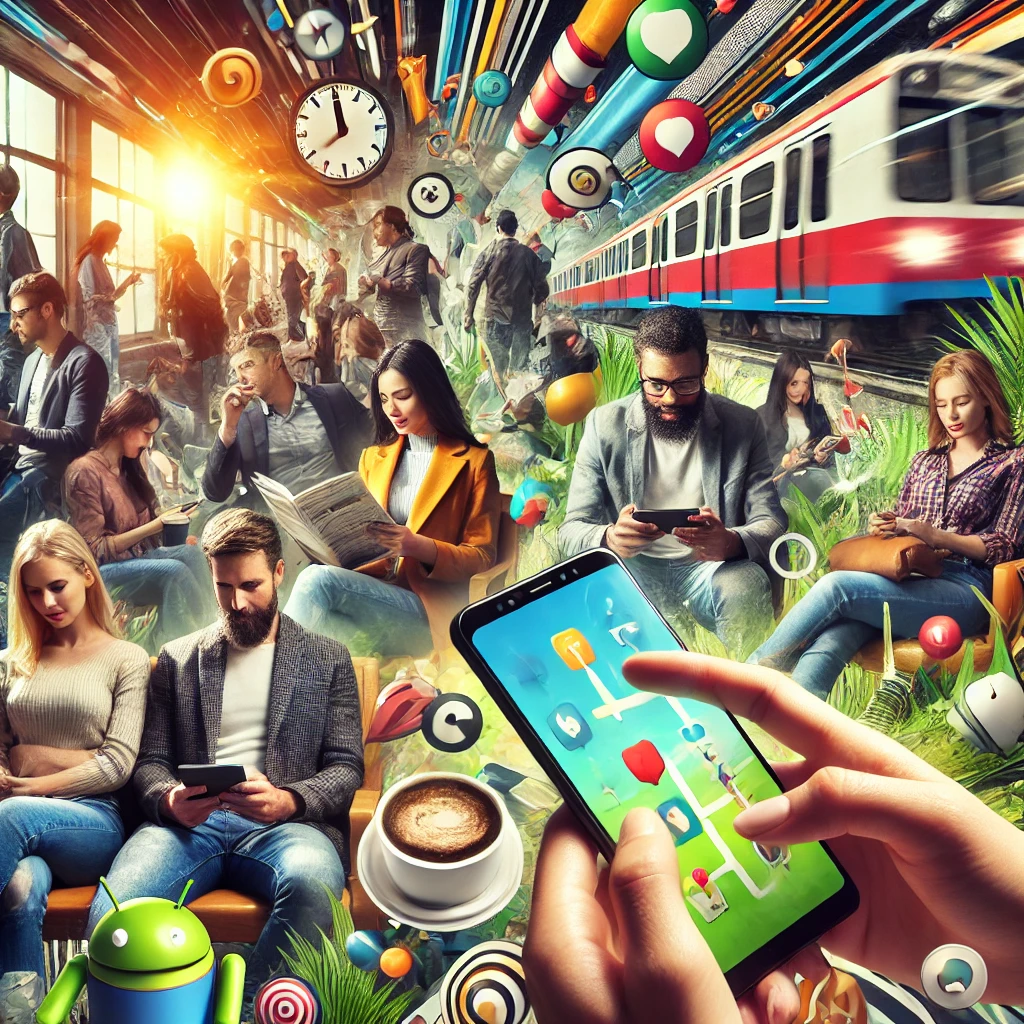Mobile games have become an integral part of modern life, offering entertainment, relaxation, and social connection at our fingertips. From casual puzzles to competitive multiplayer games, the diverse range of mobile gaming experiences caters to all ages. This article delves into how mobile games influence our daily routines and interactions.
The Popularity of Mobile Gaming
With over 3 billion smartphone users worldwide, mobile gaming has seen exponential growth. Unlike traditional gaming platforms, mobile games are accessible, affordable, and convenient:
- Ease of Access: Players can download games directly from app stores.
- Variety: There are games for every preference, from strategy and adventure to trivia and word games.
- Portability: Smartphones allow gaming on the go, whether during commutes or breaks.
Mobile gaming’s widespread appeal is a testament to its ability to seamlessly integrate into everyday life.
How Mobile Games Shape Daily Activities
1. Entertainment and Stress Relief
Mobile games serve as an escape from daily stressors:
- Casual games like Candy Crush or Angry Birds provide quick, engaging distractions.
- Role-playing games (RPGs) immerse players in fictional worlds, offering a break from reality.
Studies suggest that moderate gaming can boost mood and reduce anxiety, making it a popular way to unwind.
2. Social Interaction
Modern mobile games often include multiplayer modes and online communities. Games like Among Us and Clash of Clans foster social connections by:
- Allowing friends to collaborate or compete.
- Building communities through shared interests.
For some, these games offer a platform for maintaining friendships or meeting new people globally.
3. Skill Development
Contrary to the stereotype of gaming as a passive activity, mobile games can enhance various skills:
- Cognitive Skills: Puzzle and strategy games improve problem-solving and critical thinking.
- Reflexes: Action games enhance hand-eye coordination and reaction times.
- Creativity: Games like Minecraft encourage players to design and build.
The Dual-Edged Sword of Mobile Gaming
While mobile games bring numerous benefits, they also have drawbacks when overused:
- Screen Time Concerns Prolonged gaming can contribute to eye strain, sleep disruption, and sedentary lifestyles. Balancing screen time is crucial for overall well-being.
- Addictive Design Many games use rewards, notifications, and daily challenges to keep players engaged. This “gamification” can lead to compulsive usage, affecting productivity.
- Monetization Strategies Free-to-play models often include in-app purchases or ads. While these make games accessible, they can lead to overspending or frustration.
Mobile Games and Their Societal Impact
1. Gaming for Good
Mobile games have been used for positive causes, such as:
- Educational Tools: Games like Duolingo gamify language learning, making it enjoyable.
- Charity Fundraising: Some games donate proceeds to humanitarian causes.
- Awareness Campaigns: Titles like Sea Hero Quest contribute to dementia research by analyzing player behavior.
2. Cultural Phenomenon
Games like Pokémon GO have transcended traditional boundaries, creating mass social phenomena. By blending augmented reality with gaming, they encouraged outdoor activity and exploration.
Tips for Healthy Mobile Gaming Habits
To maximize benefits while avoiding pitfalls, consider the following:
- Set Time Limits: Use app timers or alarms to manage gaming sessions.
- Choose Quality Games: Prioritize games that offer meaningful or educational content.
- Engage Socially: Play with friends or join communities for a balanced experience.
- Take Breaks: Incorporate regular breaks to avoid eye strain and maintain physical activity. write for us health!
The Future of Mobile Gaming
Mobile gaming continues to evolve, driven by technological advancements:
- Cloud Gaming: Services like Google Stadia and Xbox Cloud Gaming promise console-level experiences on smartphones.
- Augmented Reality (AR): AR games are becoming more immersive, blending virtual elements with real-world environments.
- AI Integration: Advanced AI could personalize gaming experiences, adapting difficulty or content to individual players.
As these innovations unfold, mobile games will become even more intertwined with daily life, shaping the future of entertainment and interaction.
Conclusion
Mobile games have transformed from casual diversions to influential elements of modern culture. By balancing their advantages and challenges, individuals can enjoy the best of what mobile gaming offers while maintaining a healthy relationship with technology. If you have experiences or insights on gaming in your community, we invite you to share your story with us at write for us gaming!




